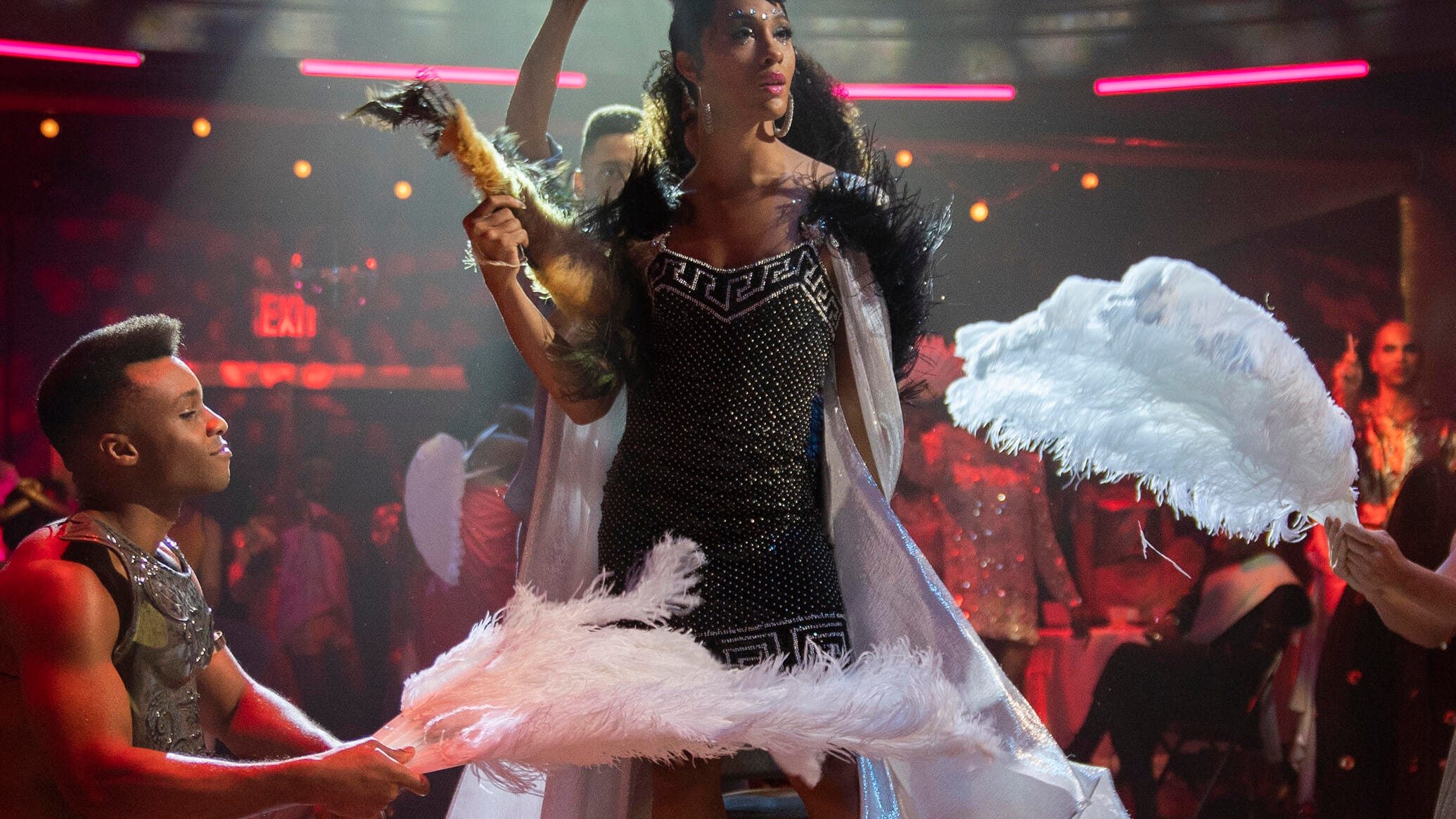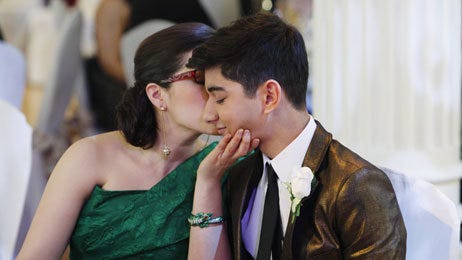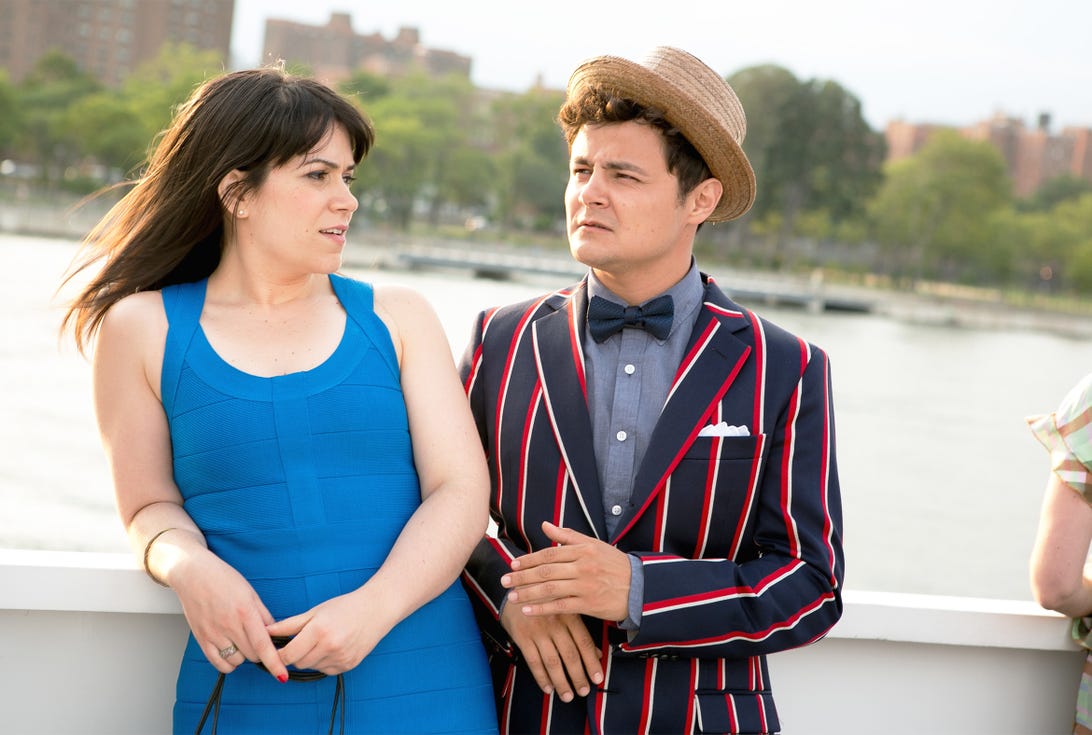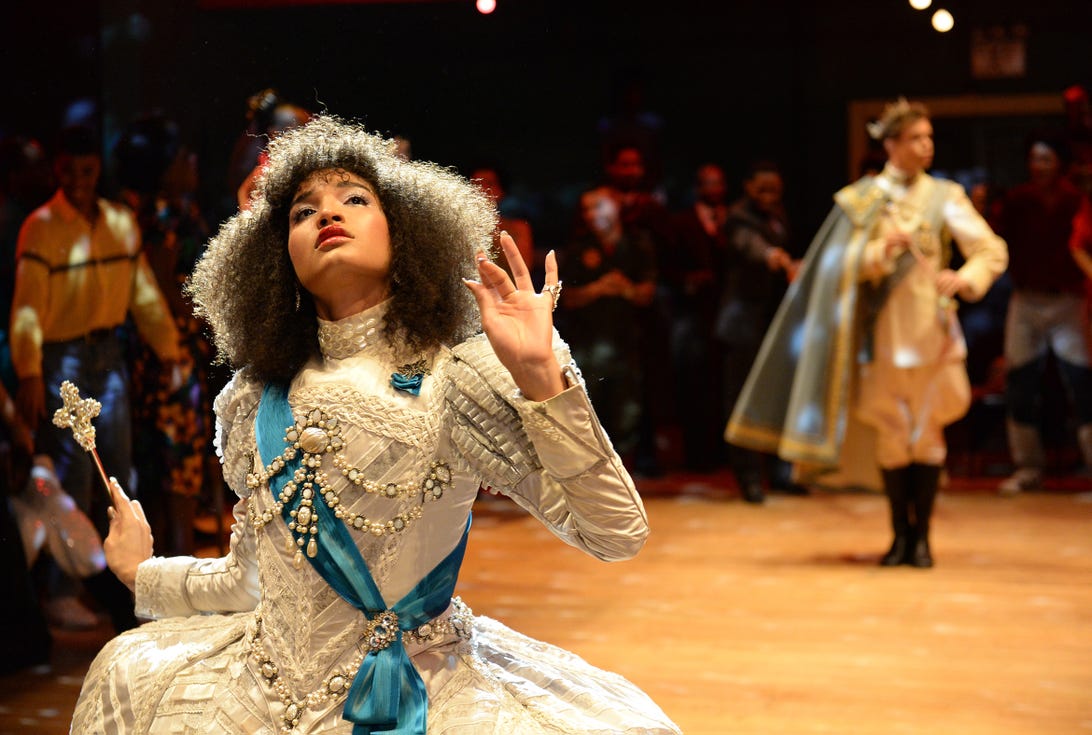
Queer Latinx TV Characters Helped Me See Myself When I Needed It Most
Justin from Ugly Betty deserved more, and so did I.
Scientific and psychological research in the last few years has come to support the long-theorized idea that we're attracted, both romantically and platonically, to people who are similar to us. The influence of identity representation in mainstream media is built upon a similar premise: that we relate to and gravitate towards public figures and fictional characters in whom we see some of ourselves.
For a queer Latinx like myself, TV's recent explosion of content centered on characters who share identities like mine has been nothing short of a godsend. But long before Poseand Vida arrived, when I struggled to come to terms with my own identity, I unknowingly looked to characters on television for guidance on how to live as authentically as I felt I wanted to be on the inside -- before I even knew what that authenticity looked like.
When I was too young to understand what made me different from most people, I found validation in experiencing any type of connection to the parts of me that I didn't see in other kids. I'd often cozy up to my mom while she watched Will & Grace, and despite my situational differences from Sean Hayes' flamboyant Jack McFarland and Eric McCormack's wealthy Will Truman, I felt a connection to their characters that I myself couldn't even quite place. All I knew was that they exhibited qualities that reminded me of my uncle --who I felt a similar unnameable connection with -- and that we all shared at least one pretty big thing in common.

It wasn't until a few years later, at the height of my obsession with the Pokémon anime, that I changed channels during a commercial break and stumbled upon Ugly Betty. While Will and Jack gave me a blueprint of queer success acceptable to straight people, it was Justin -- the short, tan, and effeminate nephew of Ugly Betty's titular character -- who showed me what it looked like for someone who looks and acts like me to live true to themselves.
The fact that I attended Catholic school for 14 years certainly didn't help my case. Around the same time that I routinely watched Pokémon every night, my religion teacher screened a short film in class that showed two tuxedo-clad wedding cake toppers among some of the most horrific sins that a person could commit. Later, when I attended an all-boys Catholic high school, I was forced to sacrifice authenticity for safety as I repressed my identity even further in an attempt at normalcy and camaraderie with my peers. At school, it was sports fanaticism and choruses of "Dude!"; at home, it was Lady Gaga choreo, America's Next Top Model, and Justin's second season arc where he tried to separate his school life and his personal life with an affected machismo. It was a flimsy diversion, easily seen through by the adults close to him, but not his peers. And that was enough for me. Without Justin, I might not have survived long enough to find a place to express myself.
Thankfully, by the time I moved away to college, TV was beginning to see an influx of queer Latinx characters that made me feel comfortable enough to publicly acknowledge who I am. Broad City's lovable Jaime, not unlike myself, was a partner in crime in many of his female friends' antics. Elena's first season storyline on One Day at a Time gave me hope that one day, even in Catholic schools, kids like me wouldn't have to hide who they are from everyone in their lives. On HBO's Looking, Agustín's backstory as a queer Latinx from Coral Gables, Florida, was almost too creepily close for comfort. And by the end of Jane the Virgin's spectacular five-season run earlier this year, three of the show's main characters (along with recurring guest star Rosario Dawson) were queer women.

Many of the portrayals of queer people onscreen that I absorbed were flawed, to be sure; Ugly Betty's Justin, for example, was just one of the show's queer stereotypes, the other being Michael Urie's (admittedly brilliant) portrayal of sassy assistant Marc St. James. But if it wasn't for the moments I witnessed characters like these on TV -- whether as a faithful watcher of shows with queer characters or casual one-time glimpses while flipping channels -- I know I would've had a much longer, tougher time finding the confidence in my sexual identity that I'm lucky enough to have today.
By the time Pose premiered in June of 2018, I was the surest of myself that I had ever been in my gender identity. As a result, it was exhilarating beyond words to feel myself walking alongside these characters and their emotional journeys, rather than sprinting to catch up. Every accolade Pose has received has made my gender nonconformity feel that much more validated, as it undoubtedly has for the show's fabulous trans cast members. But more importantly, Pose deserves special recognition for chronicling a portion of queer history that is often forgotten, in large part because there are so few elders alive to tell their story.
Isolated queer kids everywhere may see shows like Pose snatching awards and feel reassured of something they may struggle to understand: that people like us have always been here, and we'll always be with you. The sense of community and shared history that Pose centers around is exactly what I needed while watching aspirational white queerness on my mom's couch. Despite that, I don't begrudge shows like these for saturating our cultural conciseness right now; instead, I use them now to help me along my own journey, understand myself while simultaneously using these shows to explain things -- like what it means to be genderqueer, how pansexuality plays a role in my personal life, and what true happiness looks and feels like to me -- to friends, family, and the generally nosy.

Still, there's one specific instance of representation on TV that I would love to see next: a genderqueer Latinx actor playing a genderqueer character. Pose's beloved Indya Moore, Tales of the Citynewcomer García, and Vida's Ser Anzoategui are just a few of Hollywood's working non-binary Latinx actors at the moment, but each play binary trans and cis characters on their respective shows. (As it stands right now, Billions' Asia Kate Dillon is the only non-binary actor on TV who plays a non-binary character--the first in American TV history when they joined the show's main cast in 2017.)
But overall, the queer Latinx characters on TV -- flawed as some of their portrayals are -- that made cameos (for lack of a better term) at different points in my young life helped me see possible, future versions of myself at times when I didn't even think I would live long enough to become that person. They reminded me at times when I hated who I was that there were people like me out there -- and they were successful enough to be on TV. In hindsight, maybe if I'd spent more time watching Justin on Ugly Betty instead of Ash on Pokémon, I would've boasted enough self confidence by the time middle and high school rolled around to step out cautiously out of the closet. I'd be lying if I didn't acknowledge these characters not only helped me survive, but also pushed me to thrive.
As we now approach a new decade in a post-Vida and Pose world, I have higher hopes than ever for queer Latinx visibility on television and the comfort and strength that it will give kids like me who could've used it growing up. Students at my high school, for example, are still prohibited from going to prom without a female date. Still, the prospect of more new shows that center, uplift, and celebrate queer and trans Latinx folks excites me as a young adult in the midst of their second queer adolescence, ready to discover parts of themself through the stories of different TV characters.